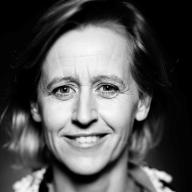 \
&
Contact us
\
&
Contact us
 \
&
Contact us
\
&
Contact us
The Energy Challenge is designed to support the transition to a reliable, sustainable and competitive energy system.
To make the transition to a competitive energy system, we need to overcome a number of challenges, such as increasingly scarce resources, growing energy needs and climate change.
The Energy Challenge is structured around seven specific objectives and research areas:

Ria.debreucker@vlaio.be
+32 2 553 13 77
Find the contact info on the site of WEWIS
The National Contact Points (NCPs) provide support, guidance, and practical information to potential applicants, helping them navigate funding opportunities and application processes.
The Programme Committee (PC) members represent their country in decision-making about the work programmes, evaluate implementation, and provide strategic input on priorities and calls.
Infosheets contain edited content on aspects related to this programme. They are reviewed at least yearly.
Related links are easy pointers towards external information. We curate the list, but are not liable for the destinations.
Documents contain additional information related to this programme, and are similar to related links.
Autoship is, as the name suggests, an acronym for autonomous ship. Just like with self-driving cars, the possibilities of an unmanned boat seem endless. It can create more efficient freight transport, around the clock deliveries and these are just a few of the examples. The project has two societal challenges.
At first, De Vlaamse Waterweg was a bit hesitant as their experience with FP7 or Horizon 2020 projects was limited and they had not been very successful up until then. The fact that they were already doing basic research on the topic of autonomous boats, and the administrative help of NCP FLanders helped De Vlaamse waterweg to cross the line and get involved.